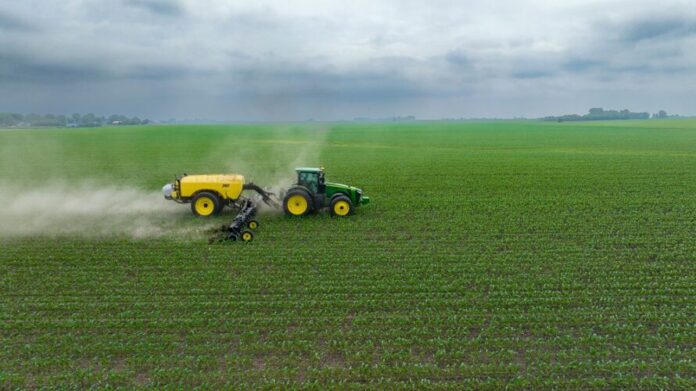To assist in defending farmers against potential shortages in the future, EU Agriculture Commissioner Janusz Wojciechowski has hesitantly pledged support for developing an EU-wide fertilizers plan, Euractiv reports.
During a meeting between the French and Spanish agricultural ministers, Marc Fesneau and Luis Planas, a prospective plan to increase domestic fertilizer production to decrease dependency on other countries—particularly Russia—was addressed.
Regarding the REPower EU plan to reduce dependency on Russian fossil fuels, the French at the time emphasized the necessity to establish “an EU policy for fertilizers like the energy strategy.” At the same time, Planas emphasized the significance of recovering strategic independence in the fertilizer industry.
Since the situation is “now so complex,” the commissioner said, it is difficult to provide an appropriate supply of fertilizers and substitute mineral fertilizers while simultaneously lowering the number of cattle and altering the animal output.
In a news conference back in September, a representative of the EU Farmers Association COPA-COGECA supported the initiative to assist ensure a consistent supply of fertilizers throughout the EU.
Around 60% of the fertilizer used in the EU is supplied by Belarus and Russia, according to figures from the industry group Fertilizers Europe. Supplies are under a lot of strain as a result of trade restrictions with Russia and sanctions that were enacted in March against imports of potash from Belarus.
Discussions over import duties for fertilizers have also recently flared up in response to the most recent delays in Russian gas supply to Europe.
The suspension of tariffs on the inputs urea and ammonia, which are used to make nitrogen fertilizers, was recommended by the European Commission.
According to research conducted by the World Trade Organization (WTO) and the Food and Agriculture Organization of the United Nations (FAO), the fertilizer crisis, which has been progressively worsening since 2021 and has caused prices to rise by 66% as a result of shortages, is projected to continue through 2023.
Meanwhile, at the start of December, a press release confirmed the relaunch of operations of Lithuanian fertilizer manufacturer Lifosa, a subsidiary of the Swiss EuroChem Group AG.
“With the need to continue fertilizer supplies to key target markets in Europe and the Americas and the importance of Lifosa to Lithuania, we are pleased that we will be able to restart production in the short term,” Brikho noted.
The announcement further emphasized that removing restrictions on obtaining premium raw materials from EuroChem would allow Lifosa to once again meet the high cadmium limits imposed by the EU Commission.
The WTO and FAO study recommends “mobilizing foreign financial help” and putting in place instruments like “fertilizer contract swaps” to do this while reducing farmer expenses.



